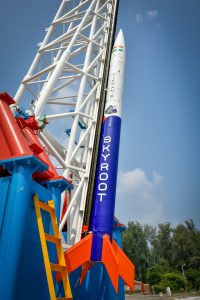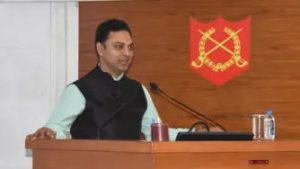Indian
Institute of Technology (IIT), Jodhpur has introduced a new BTech program in civil engineering
and infrastructure that includes courses related to large-scale integrated infrastructure.
Also Read: IIM CAT 2021 admit card to be released tomorrow, check details here
In contrast
to the standard civil engineering programs, IIT Jodhpur’s BTech program focuses
on engineering construction, product development, intellectual property and
entrepreneurship training, the centre said.
“The
Institute encourages its students to undertake multidisciplinary projects in
smart infrastructure and sustainable development with this program,” it said.
Also Read: NDA, CDS exam details to be announced on December 22
Qualified
students of JEE Advanced 2021 can join the second set of IIT Jodhpur’s BTech in
civil and infrastructure engineering. According to officials, the course will begin
from next year.
Students can
also find a specialist in ‘smart infrastructure’ or ‘environmental engineering’
in addition to the regular BTech, IIT Jodhpur has informed.
Also Read: CUCET 2021 results out, here’s how to download
According to
the official statement released by the institute reads, “The curriculum of
Civil and Infrastructure will introduce students to a wide variety of fields in
advanced Civil engineering such as infrastructure planning and designing, a
good knowledge of Artificial Intelligence (AI) and Machine Learning (ML), smart
materials and sensors, and security of infrastructure against physical and
digital threats,”
Students
with BTech degrees will have job opportunities beyond the ordinary areas – in
various fields such as sustainable infrastructure engineering (energy,
environment, transportation, etc.), digital twins and asset management, and the
use of AI and ML, IoT, and cyber -physical. programs in the built-in
infrastructure, according to the institute.
“Unlike
the manufacturing, automotive, and aerospace industries, civil and
infrastructure industries have been slow in embracing the digital and
transformative technologies. The application of artificial intelligence,
cyber-physical systems, and digital twins will reduce cost and time, streamline
construction, and reduce waste”, said Prof Ranju Mohan, Head of the department.
“Our program
has a course structure that incorporates and integrates conventional civil
engineering with these advanced transformative technologies. In this way, we
are creating next-generation Civil Engineers who can address societal needs
from a multidisciplinary perspective which is exactly what the current industry
needs,” he added







